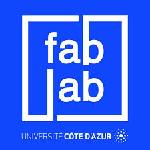Coordinated by: Didier Orlandi
FORMAT
Classroom
LOCATION
Campus Valrose, FabLab
PREREQUISITES
See below
CAPACITY
10 students
ABOUT THIS MINOR
- Summary
-
The Internet of Things (IoT) is a network of physical terminals called "things", which integrate sensors, softwares and other technologies to connect to other terminals or systems over the Internet and exchange data with them.
Learning outcomes
- Securely implement any connected system.
- Know the different communication protocols: MQTT, LORAWAN, ...
- Create a web interface to visualize data from connected objects.
- Publish a video stream (webcam, IP camera, camera, etc.)
- Create or modify basic programs in Python language, in C language (Arduino), design web pages in HTML5 and javascript.
- Understand how an artificial or convolutional neural network works.
- Design a neural network with Python and Yolov8 for the detection of objects in an image or video (recordings or real-time with a webcam).
These objects can be simple household appliances or more complex industrial tools. With more than 7 billion connected IoT devices today, experts expect this number to rise to 10 billion by 2020 and 22 billions by 2025. In just a few years, IoT has become one of the most important technologies of the 21st century.
This minor aims to enable each student to acquire the basic knowledge to design a connected object using different servers and communication protocols (Ethernet, Wifi, Lorawan, MQTT, etc.).
Participants develop skills in engineering, programming and also artificial intelligence. An brief introduction to neural networks and their applications in IoT and real-time object detection (with YoloV8) will be delivered. Students will be able to work with different types of microprocessors (Arduino wifi, ESP32 Heltec, Raspberry Pi, and STM32 (STM32 and embedded systems provided through a collaboration with the STMicroelectronics company) The objective is to foster innovative solutions combining IoT and AI.
This course is adapted to different levels: beginners, intermediate or advanced. This minor can also be very useful for programming beginners who want to discover the basics of programming in Python, C language, HTML, javascript, etc.
The teaching will be divided into 2 stages :- During 2 to 3 sessions, a first part will be devoted to the presentation of the functional chain of communication of connected objects and the different elements allowing it to implement (communication protocols, recovery and posting of data online).
- In a second time (at least 5 sessions): teaching will be entirely dedicated to the implementation of projects chosen by the students (individually or in groups): weather station, beehive, remote control of experiments, various measuring devices (temperature, pH-metry, seismograph, air quality analysis, etc.), use of AI in IoT projects, etc. The data collected can be recorded in a database and the designed system will become one of the elements of a network of connected objects.
The data collected can be stored in a database and the designed system will become part of a network of connected objects.
Students will learn how to use different types of microprocessors and to design interfaces (website, Python programs, android applications) to communicate with these connected objects.
The use of a video server will allow the management of video streams (images, live videos, VOD, etc.) - Lecturers
-
- Philippe Aplincourt
- Guillaume Huillard
- Didier Orlandi
- Prerequisites
-
- Scientific bachelor.
- This course is aimed at beginners as well as more experienced people in the field of IoT. During this course, individualized teaching will allow everyone to master the basic knowledge of IoT and for some to carry out advanced IoT projects.
- Bring your own personal computer / tablet (windows, mac or linux).
- Resources
-
- Training website: https://eftis.univ-cotedazur.fr
- Evaluation
- The evaluation will consist of 2 exams:
- Project report
- Project presentation - 16/04/2026 during the last session
SCHEDULE Spring 2026
Mind the evaluation time and modalities in the "Evaluation" tab below.
| Date | Time | Course Title | Trainers | Location |
| 19/02/2026 | 9h00-12h00 | Team Project : realization of a connected project, face-to-face. Face-to-face and distance : Presentation of the communication chain of a connected object. Introduction to the different types of microprocessors (arduino, STM32) Implementation of simple sensors with arduino. Choice of a connected objects project to realize. |
D. Orlandi, P. Aplincourt, G. Huillard | Campus Valrose, FabLab |
| 5/03/2026 | 9h00-12h00 | Team Project, face-to-face. Face-to-face and distance: Presentation of the communication chain of a connected object. Introduction to the different types of microprocessors (arduino, STM32) Implementation of simple sensors with arduino. Choice of a connected objects project to realize. |
D. Orlandi, P. Aplincourt, G. Huillard | Campus Valrose, FabLab |
| 12/03/2026 | 9h00-12h00 | Team Project, face-to-face. • Presentation LORA, LORAWAN. • Implementation of the LORAWAN UCA board. • Face-to-face: Management of connected object project groups. |
D. Orlandi, P. Aplincourt | Campus Valrose, FabLab |
| 19/03/2026 | 9h00-12h00 | Team project, face-to-face: supervision: connected object projects. | D. Orlandi, G. Huillard | Campus Valrose, FabLab |
| 26/03/2026 | 9h00-12h00 | Team project, face-to-face: supervision: connected object projects. | P. Aplincourt, G. Huillard | Campus Valrose, FabLab |
| 2/04/2026 | 9h00-12h00 | Team project, face-to-face: Discussions about the chosen case studies In autonomy: Bibliographic research |
D. Orlandi, P. Aplincourt | Campus Valrose, FabLab |
| 9/04/2026 | 9h00-12h00 | Team project, face-to-face: Discussions about the chosen case studies In autonomy: Bibliographic research |
D. Orlandi, G. Huillard | Campus Valrose, FabLab |
| 16/04/2026 | 9h00-12h00 | Team project, face-to-face: Presentation of the different projects | D. Orlandi, P. Aplincourt, G. Huillard | Campus Valrose, FabLab |

